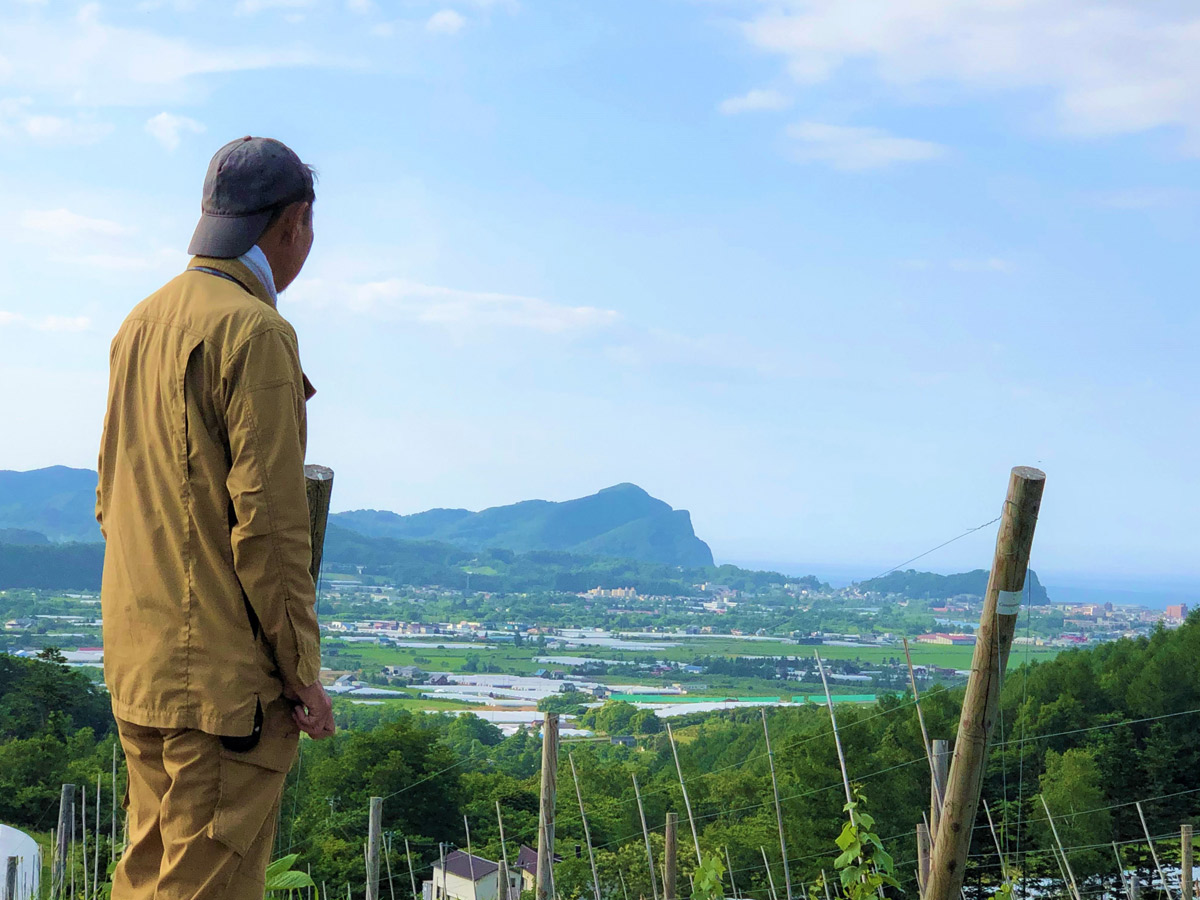Visiting
Natural Farm Group
~Part II Winemaking as Told by Mr. Ueda~

13-49 Higashimachi, Niki-chou, Yoichi-gun, Hokkaido
http://www.organicwine.jp/
-
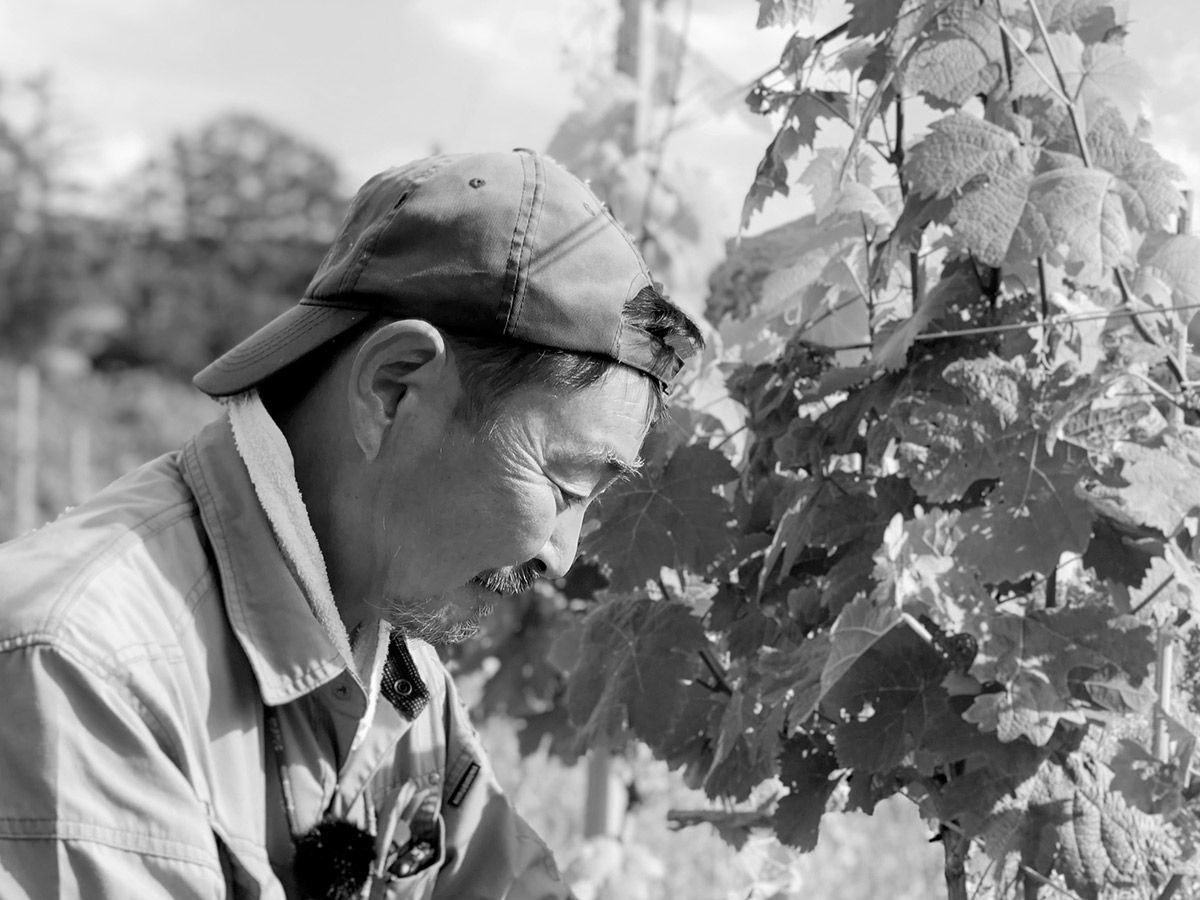
-
About
Mr. Ichiro UedaCEO of Natural Farm Group Co., Ltd.
Although born in Sapporo, Hokkaido, Mr. Ueda spent his junior high and high school years in California due to his father’s work. After returning to Japan, he attended university and worked for an IT company in Tokyo as an engineer. He frequently visited Hokkaido for work and rediscovered the beauty of the local area, rich in nature. A friend gave him a field and blueberry plants, and he and his wife decided to start an organic farm. He founded Natural Farm Co., Ltd. in 2000 then later established Natural Farm Group Co., Ltd. with Very Berry Farm & Winery Niki as their vinifying division in 2008. In 2020, he started a second winery under Natural Food Group, Domaine Ichi, to produce natural wine, but eventually the two wineries will merge into Domaine Ichi.
-
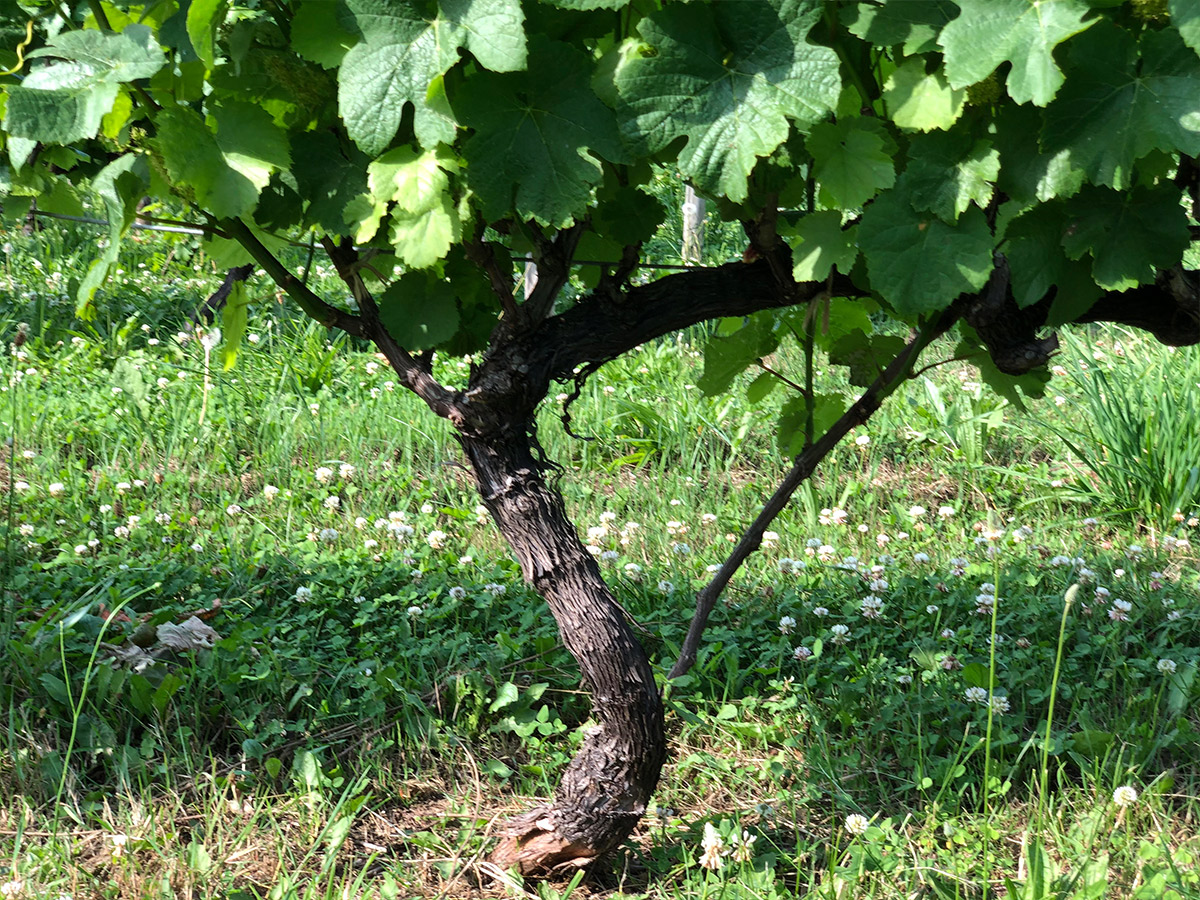
Older Pinot Noir -
Commitment to Organic
The First Winery in Japan to Obtain Organic Wine Certification
Natural Farm Group became the first winery in Japan to obtain organic wine certification in 2011. “We were able to obtain the certification by taking advantage of Hokkaido’s geographical location,” Mr. Ueda said.
To be certified organic, the wine must be made from JAS (Japan Agricultural Standard) certified organic grapes using organic winemaking methods. Organic JAS certification is under the jurisdiction of the MAFF (Ministry of Agriculture, Forestry and Fisheries), while wine certification is under the jurisdiction of the MAFF and the Japan’s National Tax Agency. In other words, the hurdle is high because it must be certified by two institutions. As of 2021, there are only two wineries in Japan producing certified organic wines.
Guaranteed Safety and Security
“The grapes are grown with little to no pesticides and no herbicides. They are squeezed as is to make wine without any additives. The reason why I wanted to crown our wines as organic is because we want to assure our consumer’s safety and security.” Mr. Ueda said.
Adopted for ANA Domestic In-Flight Wine Sales for Three Consecutive Years
In 2014, Mr. Ueda received happy news. His organic wine had been adopted as the in-flight wine for all ANA domestic flights.
“At the time, there was a trading company doing business with ANA for wine, and they were looking for wine to sell onboard. After various tests, the cabin attendants, who were certified sommeliers, did a tasting and decided on my wine. I was really happy,” Mr. Ueda said with a smile.
Organic Farming on Track
Even though the climate is suitable for fruit tree cultivation, he had some difficulties with organic cultivation in the beginning, especially with Vitis vinifera varieties. When insects appeared, he removed each one by hand. And when diseases appeared, he plucked each leaf by hand. In his second year of growing Pinot Noir, he lost all the leaves due to downy mildew and could not harvest even a single bunch.
After that, he started using Bordeaux solution, which is approved by JAS as organic, and his cultivation got back on track.
“As we gained more experience, we were able to figure out when to apply the Bordeaux solution. We sprayed twice in 2020 but only once in 2021. We are doing well,” Mr. Ueda said.
-
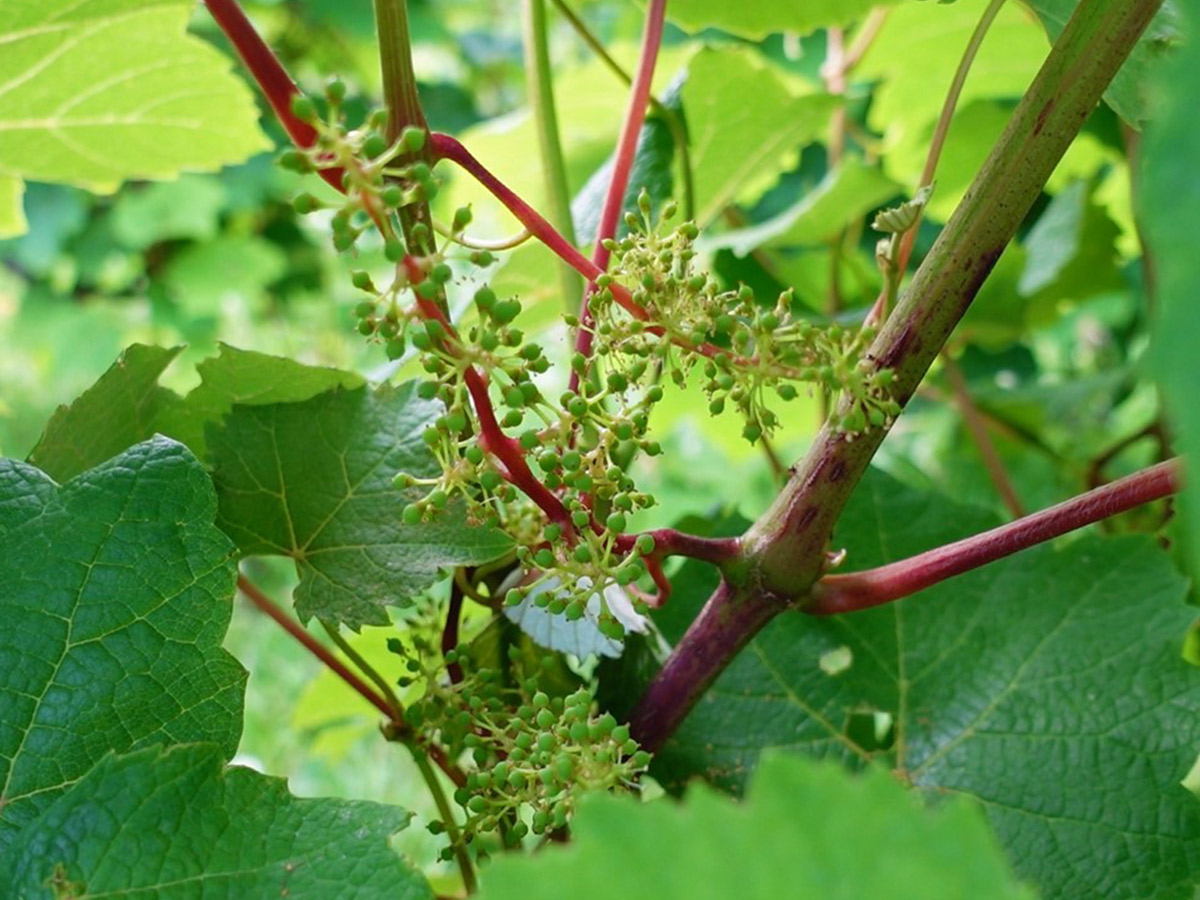
Fruiting Yama-Budou -
Featured
Grape VarietiesYama-Budou Doesn’t Require Any Work
While Mr. Ueda mainly focuses on Vitis vinifera varieties, he is also increasing the number of varieties that are easy to grow with little effort. One of these varieties is Yama-Budou (Vitis coignetiae).
When he was a child living in Sapporo, he used to play with Yama-Budou behind his house. Now at Natural Farm Group, he has spent the last ten years cultivating Yama-Budou that grows wild near Natural Farm Group’s vineyards.
“Yama-Budou is native to Japan and completely disease free. Viticulture of wine grapes of Vitis vinifera varieties requires a lot of work, such as plucking cores, removing leaves, etc., but mountain grapes only need to be mowed twice a year. It’s not much work at all,” explained Mr. Ueda.
Harvesting Only After the Sugar Content is Sufficiently High
“We wait until mid-November to harvest the grapes when the berries are wrinkled and look like Amarone. The sugar content rises to nearly 35 to 40 degrees, which makes for interesting wines. Still red wines can reach up to 15 degrees of alcohol and still have residual sugar. It has a strong punch, so I think it goes well with sweet-and-sour pork, fatty meat dishes, and gibier.” Mr. Ueda said.
Commercialized as a Dessert Wine
Also, last year, Mr. Ueda made a dessert wine from Yama-Budou as an experiment and it was well received, so he started full-scale production this year. The wine is made using a method that stops alcoholic fermentation in the middle of the fermentation process to leave a sweetness in the wine.
Expectations for Hybrids
In addition to mountain grapes, Mr. Ueda also started planting the hybrid varieties Yama Sauvignon, Bijou Noir, and Yama-Sachi. These also produce excellent grapes and good wine with very little work. For the hybrids, the plan is to wait until the berries are wrinkled and the sugar content is high enough before harvesting.
-
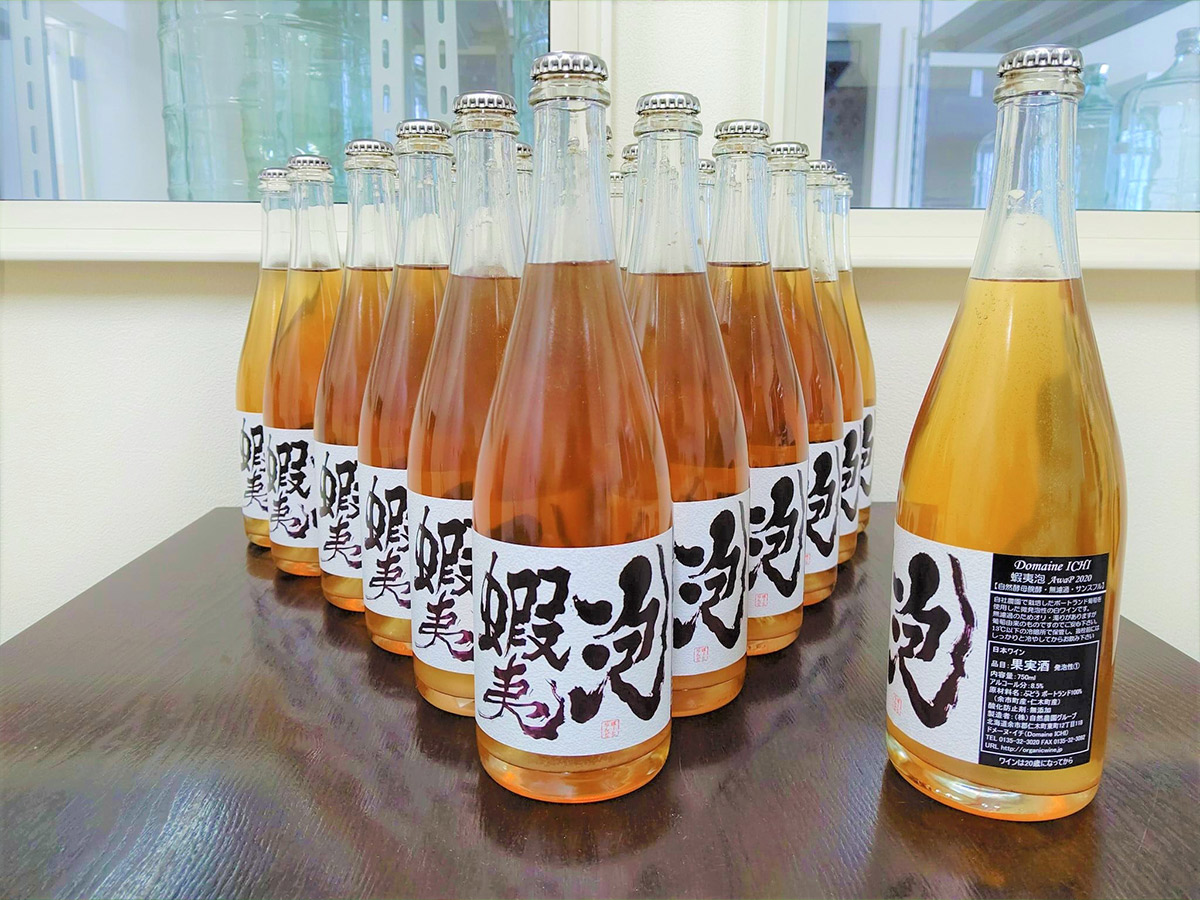
Domaine Ichi’s First Release Wine “Ezo-Awa 2020” -
My Future Goal
Aiming for More Natural Winemaking
When Mr. Ueda started making wine, there was only one other winery in Yoichi. However, after only a few years, he was shocked by the number of organic wineries that produce excellent wines. Since Natural Farm Group, like those other wineries, grows grapes organically, he began to think that if he learned how to brew in earnest, he would be able to produce even better wine.
Up until then, they had been fermenting organically grown grapes with cultured yeast, adding SO2, and filtering to keep the wine stable. But in an effort to keep the vinification as natural as possible, Domaine Ichi has started fermenting with wild yeasts, using as little SO2 as possible, and forgoing the filtration.
In an environment where there are no refrigerators, a stable wine is required. As of 2021, Mr. Ueda is able to export a stable, organic sparkling wine made from Niagara to Hong Kong utilizing the organic vilification techniques mentioned above. In the future, Mr. Ueda would like to export natural wines utilizing the natural techniques outlined above so long as they can be transported in refrigerated containers with the temperature controlled after arrival.
-
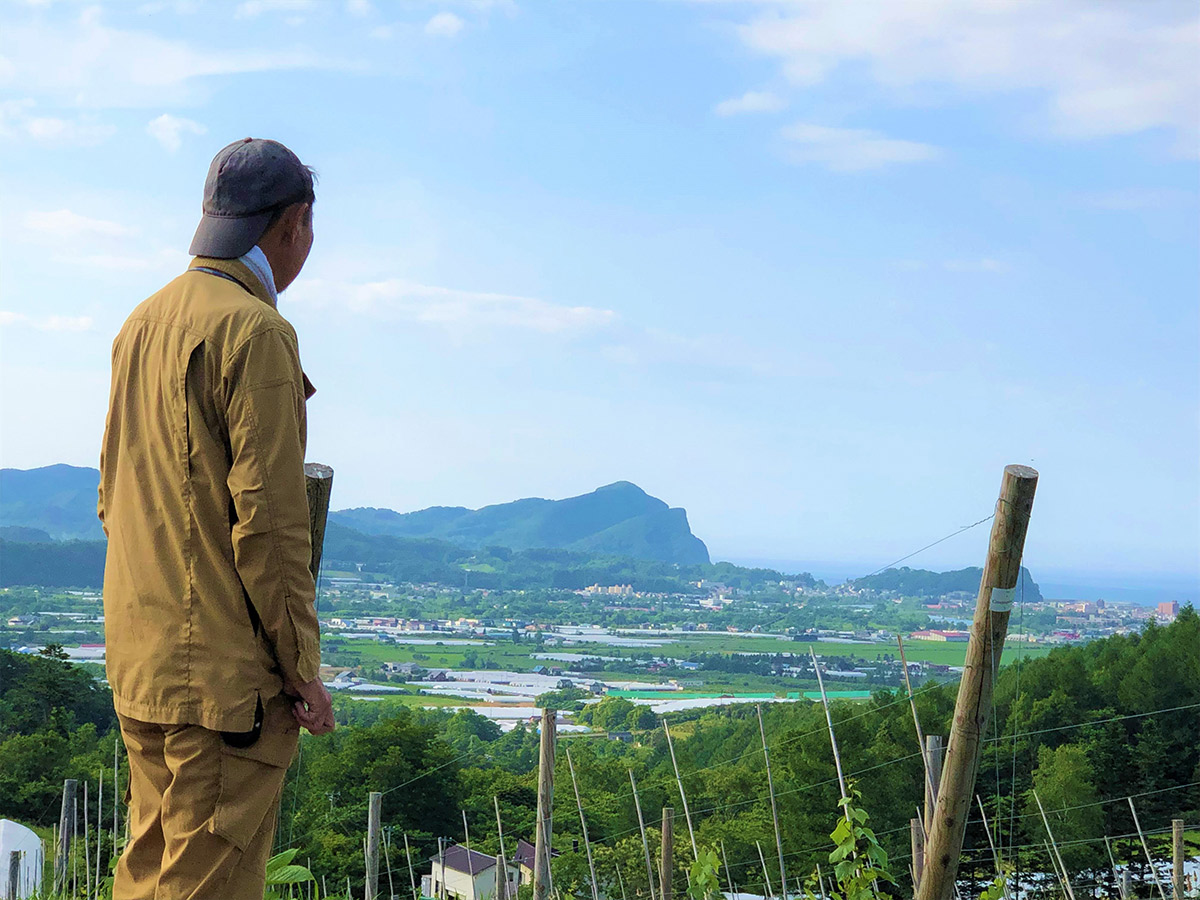
-
Want to Make
Vin Jaune HereMr. Ueda's goal is to make Vin Jaune here at Natural Food Group after he was shocked a few years ago by a bottle of Vin Jaune made in Arbois, France, at a wine party.
Vin Jaune means “yellow wine” in French. It’s a type of white wine made from the Savagnin grape variety in the Jura region of eastern France. It is a unique wine which takes many years to make.
“I have already reserved the Savagnin seedlings. I would like to plant them in the vineyard across the street from Domaine Ichi and make a Vin Jaune. So far, no one in Japan has made one yet. After three years, the seedlings will arrive. After five years, we will be able to harvest the grapes. And after six or more years in wooden barrels… It will be a long time before we can drink it. I am aiming for 15 years.”
Making Vin Jaune over a such a long period of time is also a goal Mr. Ueda uses to inspire himself. He is determined to make it a success.


